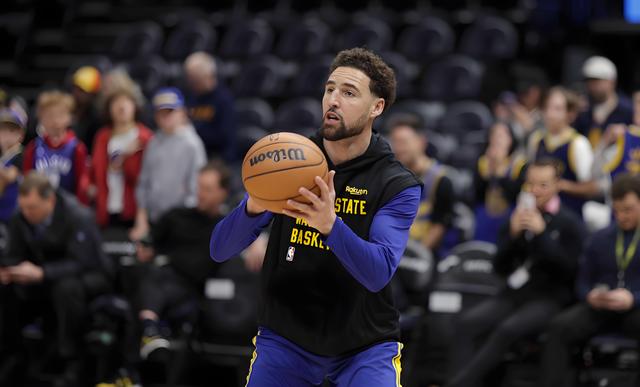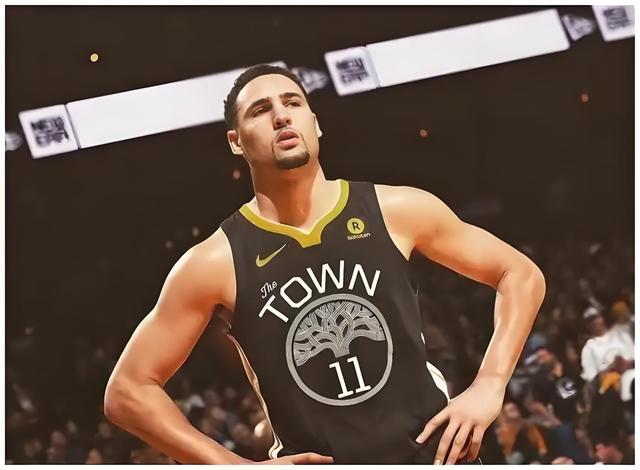Why is Klay unwilling to end his career with the Warriors? What are the reasons behind abandoning the reputation of being a one-team player?
The Warriors offered Klay a contract worth about $25 million per year, but he and his team were not satisfied with this figure. They hoped to secure a more lucrative deal based on his performance in the games.
In the following two crucial seasons, however, his performance did not meet expectations.
Despite this, the Warriors still proposed a renewal contract for two years totaling $48 million, which is undoubtedly a contract above market value for Klay at present.
Recalling the previous five-year contract worth a total of 190million,thatwasbasedonthe40 million standard in 2019.
Klay seems to insist that his value is around $30 million and also hopes to obtain a long-term contract, which makes it difficult for the team to accept.
If Klay's annual salary were $10 million, every team in the league would compete for him.
If it were $15 million, championship-contending teams would join the competition.
At $20 million, teams would need to consider carefully.

And once it reaches $25 million, perhaps only the Warriors and a few other teams willing to pay high prices would consider it.
As for a $30 million Klay, he might just have to find a cool place to stay.
From an objective perspective, the renewal contract offered by the Warriors aligns with Klay's current market value and does not take advantage of emotional factors to lower the price.
There were rumors that the Magic offered a higher quote, which may have made Klay feel popular in the free market, thus being dissatisfied with the Warriors' offer.
Recent news suggests that the actual contract the Magic is willing to offer is not that high.
The Warriors have always hoped to keep Klay.
Klay is not a core player like Duncan for the Spurs, Nowitzki for the Mavericks, Kobe for the Lakers, or Curry for the Warriors, whose status allows the team to unconditionally provide top salaries.
The Warriors' offer has been very reasonable.
The problem lies in Klay's excessive salary demands, ultimately leading to the failure to reach an agreement.

Returning to the topic of Klay's decision to leave the Warriors, is this a wise move?
After suffering two serious injuries and a long absence, his condition is no longer what it used to be.
No matter how stubborn or unwilling, one must accept reality.
Athletic ability can no longer be as outstanding as in youth. As a 34-year-old veteran, how should the future path be walked?
Not everyone can maintain good performance like James, who is close to 40 years old.
Klay spent most of his career with the Warriors, over ten years.
Suddenly switching to a new team will inevitably encounter adaptation difficulties. Changes in technical style, a new environment, and wanting to perform well is by no means easy.
He is no longer a young player with room for trial and error. Once his state declines and his performance is poor, he may completely lose market value, marking the end of his NBA career.
Whether joining the Magic or other teams, it is a challenge for Klay.

New teammates, coaches, and tactical systems will test his adaptability.
Choosing to leave in the late stages of his career seems to carry some risk. He is betting that his physical condition can maintain stable play for another two to three years.
But whether it will come true remains uncertain.
Klay is an extremely self-respecting player. For the Warriors, his dissatisfaction may not stem from money but from the team assigning him a substitute role, especially during critical moments.
Some even believe that Green's conflict with Poole occurred because, in terms of strength, Poole could not pose a threat to Curry and Green. The real challenger was Klay, whose state had declined due to injury.
After Klay's last game with the Warriors, it seemed that he himself also realized the change in his abilities.
Teammates tried their best to help, from ostracizing Poole to support and screening in the game, but the decline in ability is an undeniable fact.
His choice to leave is not only beneficial to himself but also the best arrangement for the team.
Curry mentioned in an interview during the offseason that if his abilities decline, for the sake of the Warriors, he would choose to retire.

These remarks seem to reflect Klay's situation as well.
As for why he ultimately chose to join the Mavericks instead of the Lakers, it may be because of the promise of a starting position.
Although the Lakers may have made a similar promise, Westbrook's incident shows that they do not always keep these promises.
Klay understands that if he performs poorly with the Lakers, any small mistake will be magnified, and there will definitely be many games that do not go as planned.
The Mavericks reaching the finals last season is also a significant factor.
Although his mentality has adjusted, he still harbors the hope of winning another championship, which would allow him to win the competition among his brothers.
This kind of competition among athletes can sometimes be amusing, which is why Curry and Green work so hard. They yearn to win another championship and win this competition among brothers.
As once brilliant stars, Rose and Rondo experienced ups and downs in their careers after injuries, gradually transitioning from top-paid players to mid-level and even minimum-wage contracts.
The Warriors' management made a wise decision.
They realized that Stephen Curry is still in the twilight of his prime, so they decided to save costs to sign players who can truly assist Curry, building a suitable team rather than continuing the traditional "sentimental basketball."
What are your thoughts on this?